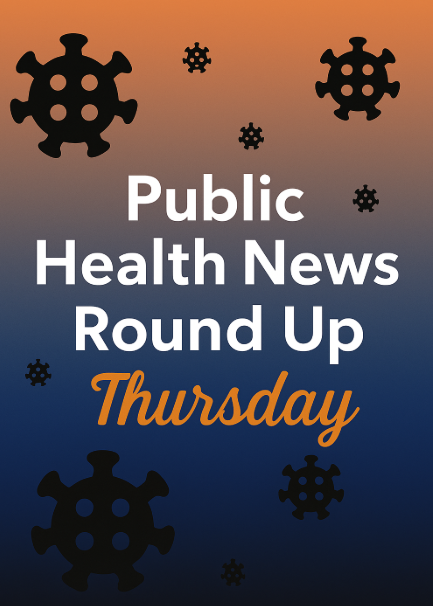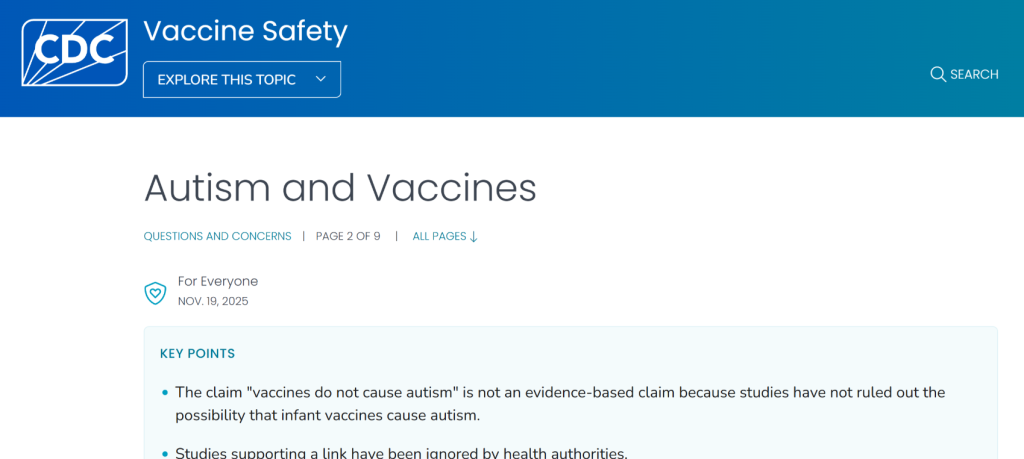
Is HHS still a Credible Health Leader? Next Week in Public Health, November 20, 2025
Late last night, the CDC posted the following on its website.

This comes on the heels of the “gold-standard, peer-reviewed” white paper that HHS released, which pushes back on gender-affirming care for youth.
Lately, I’ve found myself increasingly uneasy about how the terms “evidence-based” and “gold standard science” are being used in public conversations. Words that once signaled rigor, transparency, and methodological care are now being co-opted (sometimes intentionally, sometimes carelessly) to lend credibility to claims that have little to do with science at all. When “evidence-based” can mean whatever someone wants it to mean, the result isn’t just confusion. It’s erosion of trust.
For those of us who work every day to translate research into practice, this shift creates a real challenge. Public health depends on being honest about both the strengths and the limitations of science. We need to be able to say when evidence is strong and when it’s still emerging. We need to be able to distinguish a well-designed study from something dressed up in scientific language but built on shaky foundations. And we need to do all of this while competing with voices that use the vocabulary of science without any accountability.
This week, as we highlight new studies and emerging insights, we’re also keeping an eye on this bigger issue: how to preserve the integrity of evidence, communicate nuance clearly, and continue building trust in science even when the language around it is being stretched in troubling ways
Here’s the research for the week

Final Trump Administration Report Sharply Questions Benefits of Medical Gender Care for Kids: Newly Identified Authors Criticize Poor Scientific Evidence
The U.S. Department of Health and Human Services has released a report critical of medical interventions for minors with gender-related distress, citing a lack of robust evidence supporting their safety and efficacy. The report’s coauthors, known skeptics of pediatric gender treatments, argue that the potential harms of these medical interventions outweigh their benefits, sparking renewed debate and scrutiny from transgender advocates.
Washington resident is infected with a different type of bird flu
A new strain of bird flu, H5N1, has spread to mammals, including cows, in Texas, marking an unprecedented outbreak in the U.S. and causing extensive economic disruption across the poultry and dairy industries. While current human-to-human transmission is not observed, the situation remains volatile and highlights the urgent need for ongoing research and preparedness.
CDC Data Confirms US is 2 Months Away From Losing Measles Elimination Status
Summary: The resurgence of measles in the US, particularly along the southwest border, is a consequence of low vaccination rates attributed to widespread misinformation from anti-vaccine groups and challenges in access to healthcare. This situation highlights the need for increased vaccination efforts and reliable public health information to prevent the spread of diseases long considered eradicated.
The rising influence of the Brownstone Institute
Concerns have arisen after Martin Kulldorff, a member of the CDC vaccine advisory panel, made misleading claims about the safety of Pfizer’s COVID-19 vaccine during pregnancy, despite lacking scientific evidence to support them. Influential positions within federal health agencies are increasingly being filled by individuals affiliated with the Brownstone Institute, which promotes skepticism of vaccines and government health interventions.



